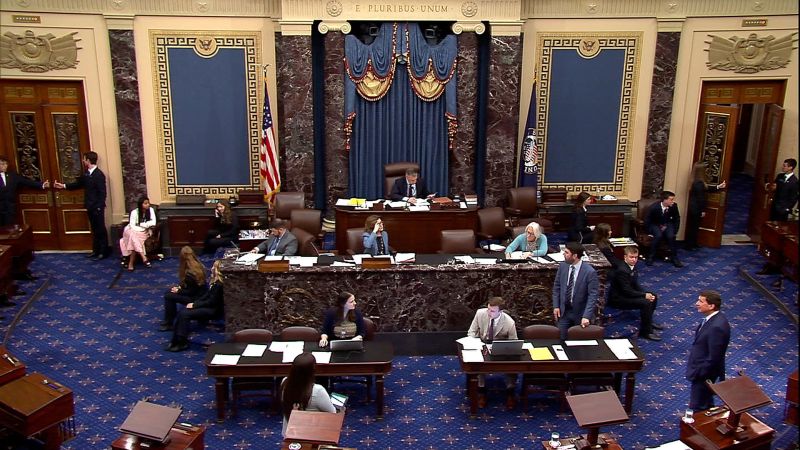The Senate passed first-of-its-kind bipartisan cryptocurrency legislation, called the GENIUS Act, after months of negotiations and weeks of back-and-forth between Democratic and Republican backers. The final tally was 68-30, with 18 Democrats voting yes, and two Republicans voting no.
The bill now moves to the House for consideration. House Majority Whip Tom Emmer has called for the chamber’s Financial Services Committee to advance stablecoin legislation by the end of July.
The GENIUS Act aims to regulate stablecoin, a specific type of cryptocurrency that is tied to the US dollar. Despite bipartisan senators working on this bill for months, and general agreement across the Capitol that stablecoin regulation is necessary, the legislation has become a flashpoint for Democratic concerns with President Donald Trump’s owncryptocurrency dealings.
Sen. Elizabeth Warren, the top Democrat on the Senate Banking Committee, has consistently warned that the bill does not place sufficient guardrails on stablecoin, and alleged that the GENIUS Act would “supercharge” corruption.
Democratic Sen. Chris Murphy of Connecticut has agreed that the bill needs stricter ethics guidelines, telling CNN’s Dana Bash previously, “If Congress passes a bill in the next few weeks that exempts the president of the United States from the ethics requirements around the issuance of cryptocurrency, then, yes, we will have no one to blame but ourselves for this, at least this, specific kind of corruption.”
However, GOP Sen. Bill Hagerty, one of the lead co-sponsors of the bill, has insisted that “this legislation is agnostic as to company, it’s agnostic as to person.”
“This is simply about putting the United States of America on the best digital payments path that it possibly could be on,” the Tennessee Republican told reporters at the Capitol in May. “This is about a payments currency, and it’s about consumer protection, and it’s about dollar dominance and Treasury dominance – that’s all it’s about. And there are a lot of superfluous questions going around but I think we’ve done a good job of answering those.”
The Senate originally failed to advance the package after Democratswithheld their supportdue to concerns over Trump’s cryptocurrencydeals. Further bipartisan negotiations resulted in a new amendment draft that garnered enough support among Democrats to move the package forward.
